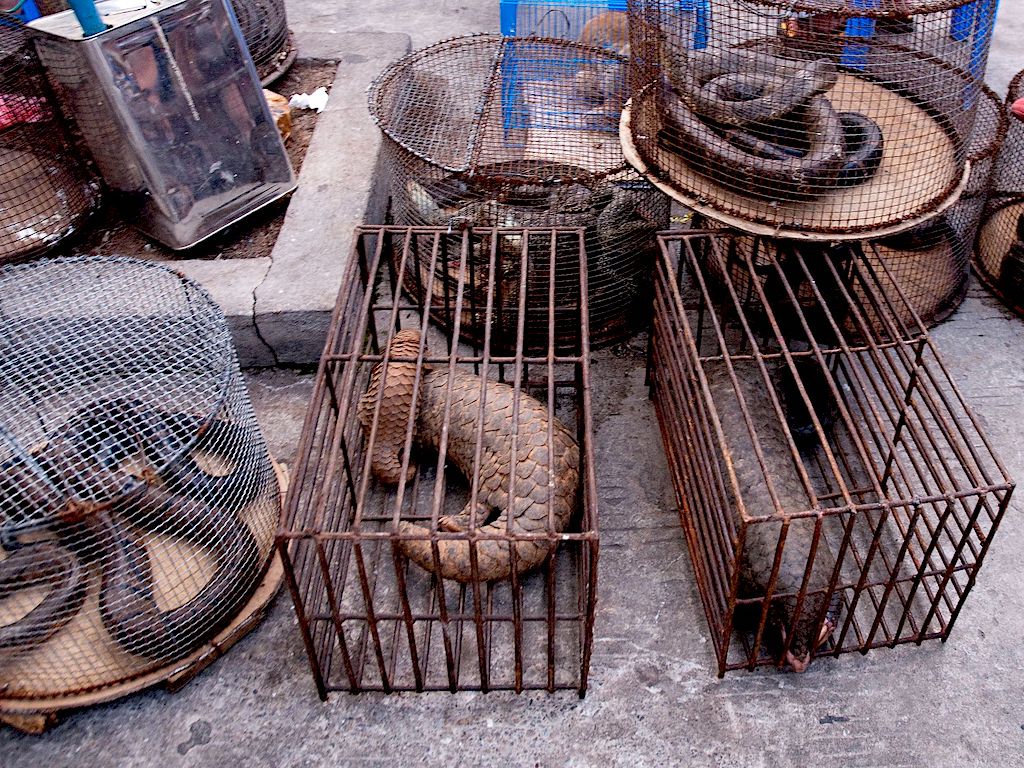4 Mins Read
A new GlobeScan public opinion survey commissioned by the World Wildlife Fund (WWF) conducted during the global Covid-19 pandemic finds almost universal support across Southeast Asia for governments to take action on illegal and unregulated wildlife markets. Respondents from the survey demonstrated a strong understanding about the connection between outbreaks of disease and the wildlife trade, and that the majority would be willing to take various individual actions to support the closure of wildlife markets.
WWF recently commissioned independent market research firm GlobeScan to conduct a public opinion survey in early March, in the middle of the current Covid-19 pandemic, to understand the willingness to support government action to shut down the illicit and unregulated trade of wildlife across Hong Kong, Japan, Myanmar, Thailand and Vietnam. Almost 1000 participants were randomly selected and interviewed in each country, totalling around 5000 respondents making up a representative sample for the general population in each market.
The survey found that there was nearly universal support (93%) from all respondents to eradicate the illegal markets that still sell wildlife, of which 79% of those surveyed said it would be an effective measure to prevent similar disease outbreaks from happening again in the future.
In addition to widespread support to eliminate the wildlife markets across all 5 regions surveyed, the study also found that the majority of the public would be willing to take individual actions to help close down the industry. 55% said that they would stop eating and buying all wildlife products, and 53% would do their part to convince others to do the same.
Read: Jane Goodall urges us to rethink our relationship with nature & wild animals
Furthermore, 50% would begin sharing relevant information, news and campaigns that seek to shut down the illegal wildlife industry. Just under half (49%) would also support wider animal protection campaigns as a part of their individual initiatives.
In the Hong Kong market in particular, 94% of the public were in support of the closure of all illegal and unregulated markets that sell wildlife, with 85% of respondents saying that they will be extremely worried that the failure to close the markets would bring about another pandemic outbreak. While 4% of participants from Hong Kong reported that they themselves or knew someone who had purchased wildlife products in open markets within the past 12 months, 91% said they would be very unlikely to buy such products again in the future.
These findings come as scientists have begun to unravel the origins of the coronavirus in recent weeks. All coronaviruses are zoonotic, meaning that they are transmitted from animal to human, and the latest research supports that pangolins, the world’s most trafficked mammal, was the likely intermediary host of the virus.
Previous outbreaks of coronaviruses have been linked to contact with or consumption of various wild animals, such as civet cats in the case of SARS, bushmeat in Ebola, and the MERS outbreak was related to camels.
Demonstrating that there is strong public support to crack down on the illegal and unregulated wildlife trade, GlobeScan’s survey is a call to governmental health and environmental departments across Southeast Asia to take concerted action to close down all high-risk markets immediately in order to avoid another potential pandemic.
Read: Preventing another pandemic – the link between coronavirus & industrial livestock farming
Recently, China has already taken steps to prohibit the trade and consumption of wild animals, putting in place a permanent ban in late February, though the law has been criticised by conservationists and scientists for its exemption of “medicinal” and “non-food” uses, which has seen the online illicit wildlife trade flourish.
Vietnam has too taken similar steps to implement a directive to ban the hunting, trade, transport and eating of wild animals, but other Southeast Asian governments have yet to announce any immediate measures.
“It is time to connect the dots between wildlife trade, environmental degradation and risks to human health. Taking action now for humans as well as the many wildlife species threatened by consumption and trade is crucial for all of our survival,” said Marco Lambertini, Director General of WWF International in a statement.
Indeed, the wildlife trade comes at the cost of not only public health but environmental biodiversity as well. The unsustainable wildlife trade is the second-largest direct threat to biodiversity globally, only behind mass habitat destruction. According to a 2019 report from the Intergovernmental Science-Policy Platform on Biodiversity and Ecosystem Services (IPBES), an average of 25% of all global species are now threatened with extinction.
Read our earlier Covid-19 coverage here.
Lead image courtesy of Wikimedia Commons.




